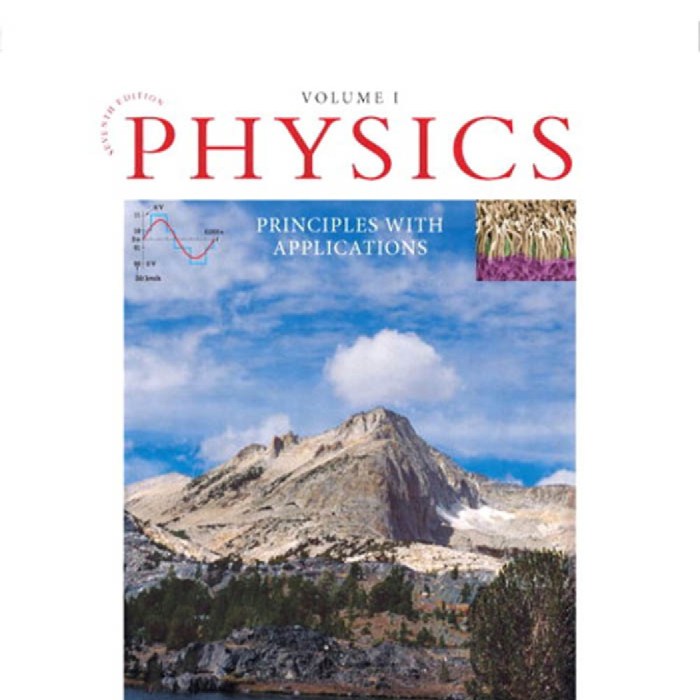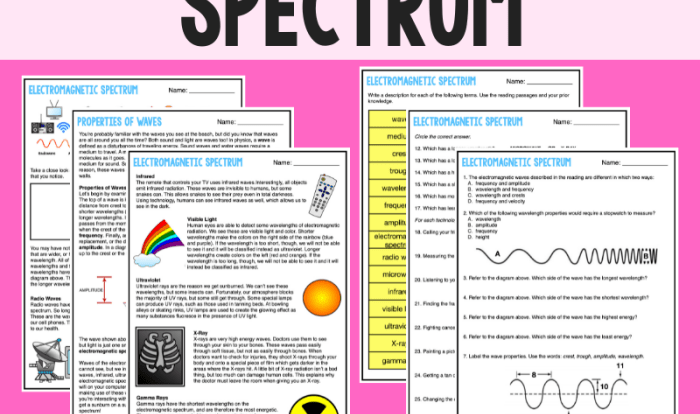Embark on an enlightening journey with Physics Principles with Applications 7th Edition Answers, a comprehensive guide that unravels the mysteries of the physical world. Delve into the fundamental concepts, explore the principles of mechanics, heat, and thermodynamics, and uncover the fascinating realm of waves and optics.
Dive into the depths of electricity, magnetism, and modern physics, gaining a profound understanding of the forces that shape our universe.
As we delve deeper into each chapter, we will unravel the intricacies of motion, forces, and energy, unlocking the secrets of mechanics. We will explore the concepts of heat and thermodynamics, gaining insights into heat transfer and energy conversion. The realm of waves and optics will reveal the properties of mechanical and electromagnetic waves, shedding light on reflection, refraction, diffraction, and interference.
Fundamental Concepts

The 7th edition of “Physics Principles with Applications” aims to provide a comprehensive understanding of the fundamental principles and laws of physics. These principles form the foundation for understanding the physical world and making predictions about its behavior.
The textbook covers essential concepts such as motion, forces, energy, heat, waves, electricity, magnetism, and modern physics. By mastering these principles, students can develop problem-solving skills and apply physics to real-world scenarios.
Mechanics, Physics principles with applications 7th edition answers
Mechanics deals with the motion of objects and the forces that act upon them. Key principles include kinematics, which describes motion without considering forces, and dynamics, which incorporates forces to explain motion. Statics focuses on objects at rest.
Understanding mechanics is crucial for analyzing motion in various contexts, from projectile trajectories to the operation of machines.
Heat and Thermodynamics
Heat and thermodynamics explore thermal energy, temperature, and the laws governing energy transfer and conversion. These concepts are essential for understanding heat engines, refrigeration systems, and energy efficiency.
The laws of thermodynamics provide a framework for predicting the direction and efficiency of energy transfer processes.
Waves and Optics
Waves and optics investigate the properties and behavior of waves, including mechanical waves (e.g., sound) and electromagnetic waves (e.g., light). Principles such as reflection, refraction, diffraction, and interference explain how waves interact with matter.
These concepts find applications in fields like acoustics, optics, and communication.
Electricity and Magnetism
Electricity and magnetism involve the study of electric fields, magnetic fields, and electromagnetic induction. Understanding these concepts is essential for designing and analyzing electrical circuits, electronic devices, and electromagnetic phenomena.
The relationship between electricity and magnetism forms the basis of many modern technologies, including generators, motors, and transformers.
Modern Physics
Modern physics delves into the discoveries and theories that revolutionized our understanding of the universe. Relativity explores the nature of space, time, and gravity, while quantum mechanics investigates the behavior of matter at the atomic and subatomic levels.
These theories have profound implications for fields like cosmology, nuclear physics, and the development of new technologies.
Applications of Physics
Physics principles have widespread applications in engineering, medicine, technology, and other fields. Engineers use physics to design structures, machines, and systems. Medical physicists apply physics concepts in diagnosis and treatment.
Physics plays a vital role in advancing technology and addressing real-world challenges, such as energy production, environmental sustainability, and medical advancements.
Frequently Asked Questions: Physics Principles With Applications 7th Edition Answers
What are the key principles covered in Physics Principles with Applications 7th Edition?
The textbook covers the fundamental principles and laws of physics, including mechanics, heat and thermodynamics, waves and optics, electricity and magnetism, and modern physics.
How can I apply the principles of physics to real-world scenarios?
The textbook provides numerous examples and exercises that demonstrate how the principles of physics can be applied to solve problems and make predictions in various fields, such as engineering, medicine, and technology.
What are the benefits of using Physics Principles with Applications 7th Edition Answers?
The answers provide step-by-step solutions to the end-of-chapter problems, helping students to check their understanding, identify areas for improvement, and reinforce their learning.

